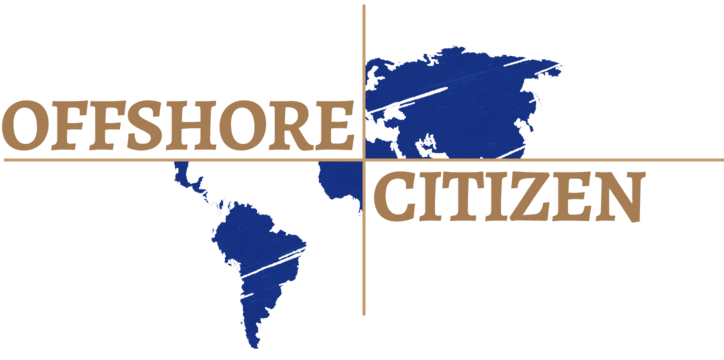Offshore Company Formations Demystified: A Complete Guide for Beginners
Wiki Article
Exploring the Services Offered in Offshore Business Formations: What You Need to Know
Offshore firm formations offer a variety of services created to assist in organization success while making sure compliance with legal demands. These services can consist of business enrollment, lawful recommendations, and arrangements for personal privacy through nominee directors. In addition, considerations around tax optimization and property security are vital. Understanding these aspects can significantly influence one's decision-making procedure. However, the intricacies of steering and selecting the right territory with regulations increase better concerns. What should one take into consideration next?Comprehending Offshore Firm Structures
What specifies an overseas firm structure? An offshore firm is generally registered in an international territory, often defined by positive governing atmospheres and privacy. These frameworks are developed to offer lawful separation between the firm's properties and its owners, making it possible for a series of operational and economic advantages. Offshore companies can be developed as different types, consisting of limited liability business (LLCs), corporations, or trusts, depending on the regulative framework of the selected territory.Trick features of these frameworks consist of boosted personal privacy, property protection, and convenience of global company purchases. Furthermore, they commonly require marginal local existence and can facilitate the administration of financial investments across borders. The choice of a certain overseas jurisdiction can substantially influence the functional capacities and conformity demands of the company. In general, understanding the intricacies of offshore firm frameworks is essential for financiers and entrepreneurs seeking to maximize their company strategies.
Tax Advantages of Offshore Business
Offshore companies offer significant tax obligation benefits that can enhance profitability and economic efficiency for company owner. Among the primary advantages is the possibility for reduced company tax obligation rates, which can be especially less than those in the proprietor's home nation. Lots of offshore territories give tax rewards, such as tax obligation holidays or exceptions on specific kinds of revenue. Furthermore, overseas companies may take advantage of beneficial tax obligation treaties, permitting the reduction or elimination of withholding tax obligations on dividends, aristocracies, and interest. This can result in raised capital and much better reinvestment possibilities. Some offshore entities can operate under a territorial tax obligation system, which just tax obligations income generated within that jurisdiction. This structure can be especially advantageous for services participated in worldwide profession or on the internet services, allowing them to maximize their tax obligation responsibilities while preserving compliance with international regulations. Overall, these tax obligation benefits can substantially add to lasting economic success.Personal Privacy and Discretion Features
How can local business owner guard their delicate details while taking advantage of international possibilities? Offshore firm formations use robust personal privacy and privacy functions that interest business owners looking for discernment (Offshore Company Formations). Numerous jurisdictions supply nominee solutions, enabling individuals to designate 3rd parties as shareholders or supervisors, consequently concealing their identities from public documentsIn addition, strict data defense regulations in countless overseas territories assure that sensitive information continues to be private. Offshore business commonly gain from boosted banking privacy, with laws that shield customer identities and financial purchases.
The usage of personal addresses for signed up workplaces minimizes direct exposure to public scrutiny.
These privacy measures allow company owner to operate with greater confidence, recognizing their sensitive information is protected. By leveraging these features, business owners can concentrate on calculated development chances without the consistent concern of info direct exposure.
Possession Defense Techniques
While guiding through the complexities of international service, entrepreneurs need to focus on asset security to protect their wealth from prospective dangers. Offshore firm formations use durable strategies for minimizing exposure to legal claims, lender activities, and political instability. One effective technique entails developing a limited obligation business (LLC), which separates personal possessions from business liabilities, thus offering a shield against claims.In addition, business owners can use trusts to hold assets, guaranteeing they continue to be secured from lenders and lawful disagreements. Jurisdictions with solid property protection laws, such as Nevis or the Cook Islands, are usually preferred for their positive laws. Carrying out correct insurance plan and expanding financial investments better enhances safety and security, decreasing vulnerability to market changes. In general, utilizing these approaches within an offshore framework not just promotes wide range conservation yet likewise fosters lasting continue reading this monetary security, enabling business owners to concentrate on development and advancement without unnecessary issue over possession exposure.

Opening Up Offshore Financial Institution Accounts
Opening overseas bank accounts entails understanding the different account types readily available, which can accommodate various financial demands. Additionally, the documents procedure is vital, as it usually needs details kinds of recognition and evidence of residence. This summary will clear up the alternatives and demands for people and businesses seeking to develop overseas financial connections.Account Types Used
Offshore checking account been available in different types, each created to deal with various monetary requirements and objectives. Personal accounts are tailored for people seeking privacy and asset protection, while company accounts help with organization purchases and management of firm funds. Multi-currency accounts are popular among global financiers, permitting purchases across various currencies without too much conversion fees. Additionally, interest-bearing accounts supply interest on deposits, appealing to those aiming to grow their properties securely. Some financial institutions also provide financial investment accounts, offering customers accessibility to numerous financial investment chances. Each account type might come with unique benefits and functions, allowing customers to choose the one that aligns finest with their monetary approaches and objectives. Comprehending these options is essential for reliable overseas financial.Needed Documents Process
To effectively open up an overseas financial institution account, potential customers need to prepare a collection of specific documents that satisfy regulatory requirements. This commonly consists of a legitimate copyright or government-issued identification to confirm identification. Customers are likewise needed to give proof of home, such as an utility costs or copyright, dated within the last three months. Furthermore, a detailed description of the source of funds is required to ensure compliance with anti-money laundering guidelines. Some banks might ask for a company plan or recommendation letters, especially for company accounts. Each territory might have unique requirements; consequently, speaking with a professional in overseas services is suggested to ascertain all paperwork is complete and exact, promoting a smoother account opening procedure.Compliance and Regulatory Considerations
Maneuvering the complexities of compliance and regulatory factors to consider is vital for any type of entity going after offshore firm developments. Entities need to stick to different global and neighborhood legislations that regulate try this website financial tasks, taxation, and company administration. Secret guidelines commonly consist of anti-money laundering (AML) regulations, understand your consumer (KYC) protocols, and coverage needs to ensure openness.Moreover, firms should continue to be cautious concerning adjustments in legislation that might affect their functional standing. Failing to comply can cause extreme penalties, consisting of fines or the dissolution of the firm. Engaging with legal and monetary specialists that specialize in overseas policies can supply important advice in steering with these details.
Furthermore, recognizing the ramifications of tax treaties and global arrangements is fundamental for maintaining compliance. Companies must focus on developing durable conformity frameworks to alleviate risks and guarantee lasting sustainability in their overseas ventures.
Choosing the Right Offshore Jurisdiction
Exactly how does one determine the most suitable overseas territory for firm formation? The option of territory is crucial and includes a number of aspects. Initially, one need to analyze the lawful structure and policies regulating firms in potential jurisdictions. Desirable tax obligation programs, such as reduced or absolutely no business tax obligations, are often a key consideration. Additionally, the political security and credibility of the jurisdiction play substantial duties in ensuring the security of possessions and conformity with global standards.Furthermore, the accessibility of financial solutions and the simplicity of working needs to not be forgotten. A territory offering durable discretion arrangements can additionally be useful for those looking for privacy. Ultimately, examining the costs connected with company development, maintenance, and prospective legal costs is essential. By evaluating these aspects, one can make a notified choice, making certain that the picked offshore territory aligns her explanation with their business objectives and operational needs.

Frequently Asked Inquiries
The length of time Does the Offshore Company Formation Refine Generally Take?

The overseas company formation process generally takes anywhere from a couple of days to several weeks. Offshore Company Formations. Variables influencing this timeline consist of jurisdiction, documentation completeness, and details provider involved in the formation procedure
What Are the Initial Expenses Included in Establishing an Offshore Company?
The initial prices for establishing an offshore company can differ extensively, commonly incorporating registration charges, lawful expenditures, and added fees for services like savings account setup and conformity, typically completing several hundred to several thousand dollars.Can Individuals Kind Offshore Companies Without Specialist Help?
People can practically create offshore firms independently; nonetheless, they frequently experience intricate lawful and regulatory needs. Offshore Company Formations. Expert aid is recommended to navigate these obstacles efficiently and assure compliance with relevant legislations and policiesWhat Papers Are Required for Offshore Company Registration?
The documents required for offshore company registration commonly include recognition evidence, an in-depth service strategy, evidence of address, and, in some jurisdictions, a statement of valuable possession and resolutions from supervisors.Exist Ongoing Upkeep Fees for Offshore Business?
Ongoing upkeep charges for offshore business are commonly required to assure compliance with local guidelines. These fees may include annual revival costs, registered representative services, and bookkeeping, varying by territory and particular business framework.
Report this wiki page